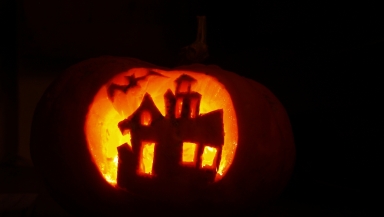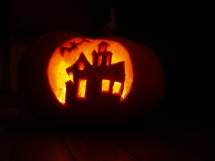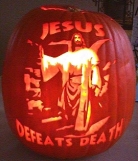
Over a third of Americans don't celebrate Halloween or at least avoid its pagan elements, new research has found.
LifeWay Research found that most Americans don't have a problem with Halloween and say "it's all in good fun" but a significant minority try to avoid Halloween altogether or try to avoid the pagan elements, despite the festival's burgeoning success.
Halloween has exploded in popularity over the last few years and Americans are expected to spend $6.9bn on Halloween this year, according to the National Retail Federation. This is more than double the amount spent ten years ago, although it is still significantly less than spending on Easter or Valentine's Day.
"As popular and pervasive as Halloween has become, there is still a sizeable minority that avoids at least some elements," said Scott McConnell, vice president of LifeWay Research.
21 per cent of Americans said they avoid Halloween completely. A further 14 per cent said they try to avoid the pagan aspects. The majority, 59 per cent, said they consider it to be all in good fun.
Unsurprisingly non-religious people were most likely to say Halloween is harmless, with 75 per cent holding that belief while only 11 per cent said they avoided Halloween completely.
However Christians did not differ too significantly from the rest of the population. A majority of 54 per cent said Halloween was all in good fun and only 23 per cent choose to avoid it completely.
Catholics proved more relaxed, with 71 per cent of saying it is good fun compared to 49 per cent of Protestants.

The statistics also reveal that evangelicals are particularly stringent when it comes to Halloween with 28 per cent avoiding the festival completely and 23 per cent avoiding the pagan elements. However a significant group (45 per cent) still said Halloween is all in good fun.
"More than two-thirds of evangelicals welcome the candy, costumes, or community interaction surrounding the holiday, but the majority are unwilling to label 'the pagan elements of Halloween' good," said McConnell.
The results were collected by a phone survey of 1000 Americans between 14 September and 28 September. Participants were asked, "when you consider the pagan element of Halloween, which is closer to your attitude?" The four options given were, "it's all in good fun," "try to avoid Halloween completely," "try to avoid the pagan elements," or "not sure."















